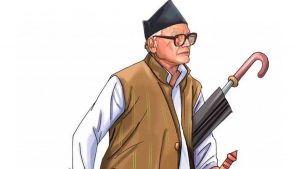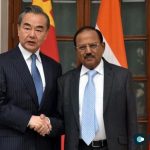
The Return of Food Insecurity in China
In recent years, China has been grappling with a series of macroeconomic challenges that are reshaping its economic landscape. Among these are a GDP growth rate that has slowed significantly, a decrease in per capita productivity, an aging population, and a soaring youth unemployment rate that may be approaching 50 percent. The manufacturing sector is also shifting away from China to more business-friendly climates like India and Vietnam, and China’s millionaires are emigrating to the United States in record numbers. These shifts are profound and long-lasting.
Food Security Crisis Returns
Adding to these economic woes, China is facing a potential food security crisis reminiscent of its past struggles. Tensions between China and its main grain suppliers in the West, the ongoing war in Ukraine, and disruptions in global supply chains are exacerbating this issue. In 2022, for the first time since 1989, China witnessed public protests against food scarcity. Food shortages, hunger, and famine have been recurrent issues under the Chinese Communist Party (CCP), historically being a significant source of political and civil instability. CCP leader Xi Jinping is acutely aware of the political dangers posed by food shortages and has made food security a top priority of his regime. Between 2000 and 2020, China’s food self-sufficiency ratio decreased from 93.6 percent to 65.8 percent.
Structural and Policy-Induced Causes
China’s food insecurity stems from various structural and policy-induced factors. Geographically, China faces the daunting task of feeding about 20 percent of the world’s population with only about 10 percent of the world’s arable land and just 6 percent of the world’s water resources. Historically, famines have been a recurring problem, exacerbated by policy missteps such as those during the Great Leap Forward from 1958 to 1962. The CCP enforced inefficient farming practices, forced collectivization, and eliminated skilled farmers, leading to significant food shortages. Natural disasters like floods and droughts during this period further compounded the problem, resulting in the Great Famine, which caused tens of millions of deaths from starvation.
Policy Reforms and Changing Diets
In the late 1970s, CCP leader Deng Xiaoping began to relax collective farming mandates, restoring private land ownership and allowing farmers to sell surplus crops. These reforms led to greater efficiency and increased food production. However, these efforts have not fully countered the negative factors affecting China’s food production. Today, China relies heavily on external sources for food. One reason is the shift in dietary preferences, with the middle class favoring a diet richer in meat, sugar, and refined grains, which has tripled meat consumption since 1990. Another issue is the declining productivity of China’s farming base.
Loss of Arable Land and Farming Workforce
China is losing significant amounts of arable land to pollution and overuse. By the end of 2019, China’s total arable land was about 490,000 square miles, a nearly 6 percent decrease from the previous decade. Food safety concerns are also prevalent among Chinese consumers due to numerous public toxic food scandals, leading to a preference for foreign food products. Additionally, younger Chinese are opting for urban jobs, while older farmers are retiring, resulting in a workforce shortage in farming and related industries. This demographic shift is difficult to reverse and directly impacts farm productivity and distribution.
Dependence on Food Imports
As a result, China has become the world’s largest food importer. In 2021, China imported over 28 million metric tons of corn, a 152 percent increase from 2020, and imported a record $42 billion worth of agricultural products from the United States in 2022. The CCP is also investing in farmland abroad, including in the United States, South America, Asia, and Africa. The Russia-Ukraine war initially caused volatility in food prices and supply in China, highlighting the CCP’s concern for food security.
False Grain Reports and Corruption
Compounding the problem, corruption among provincial and higher-level officials leads to overreported grain production figures, which undermine effective policy planning and execution. In recent years, anti-corruption efforts have resulted in the arrest of hundreds of officials in China’s grain reserve system. To mitigate food security vulnerabilities, China’s National Food and Strategic Reserves Administration has been building its grain reserves to record levels. This underscores the critical importance of food security for the CCP, as maintaining power and stability hinges on ensuring food availability for the 1.4 billion people in China.
China’s food security problem is a multifaceted issue influenced by geography, policy, and global economic dynamics. The CCP’s efforts to address this challenge are ongoing, but the situation remains precarious, with significant implications for China’s future stability and growth.
- Five Ambassadors Take Oath of Office Before President
- Recording Statements of Defendants, Including RSP President Rabi Lamichhane, Begins in Kaski Court
- China Warns U.S. Over Taiwan Military Aid, Accuses Washington of ‘Playing with Fire’
- 101st Birth Anniversary of Nepali Congress Founding Leader Krishna Prasad Bhattarai Commemorated













Comments